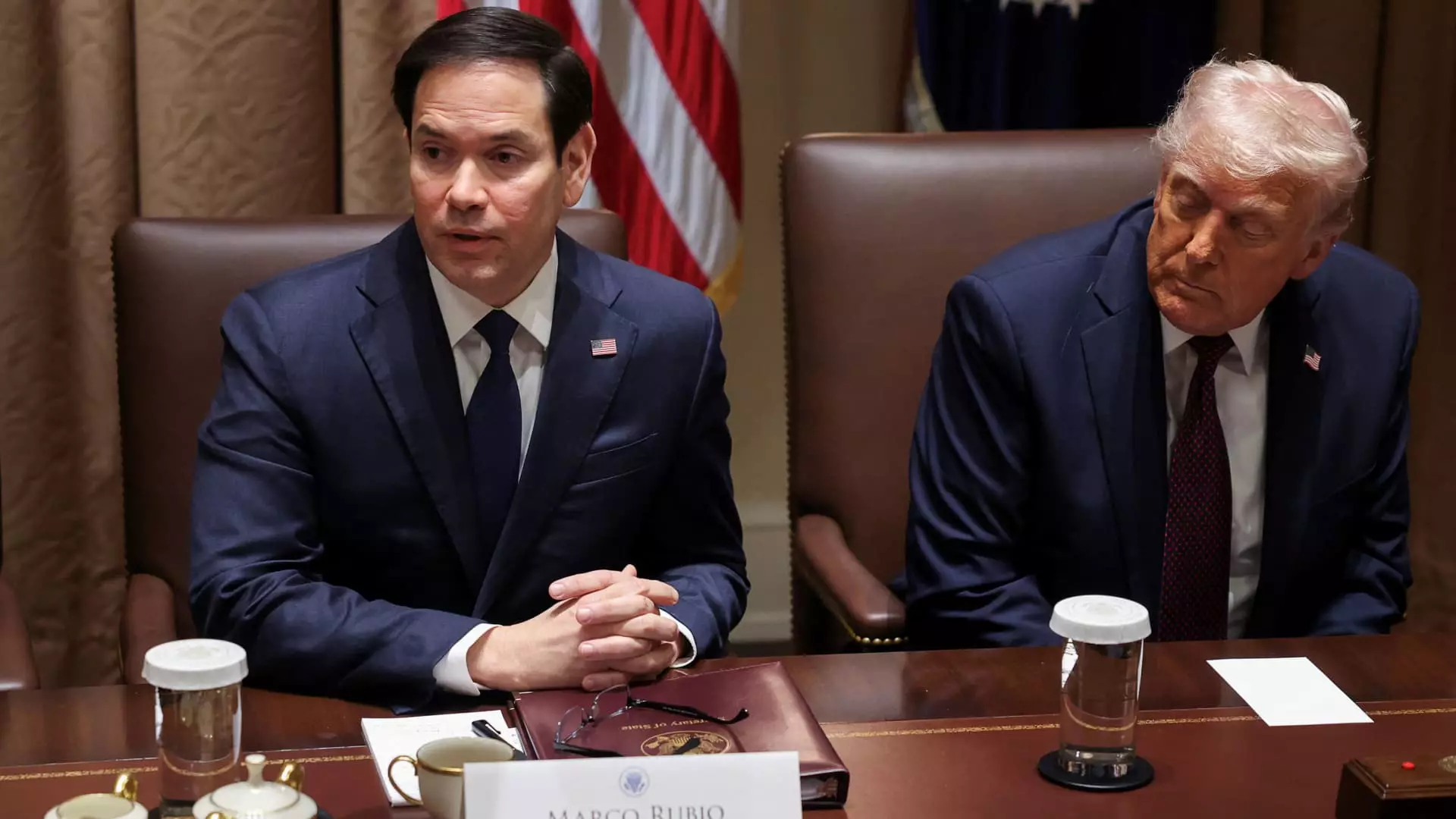The recent draft executive order by the Trump administration, detailing an extensive restructuring of the U.S. State Department, raises alarms that extend far beyond bureaucratic inefficiencies. This undated document proposes drastic measures that would drastically weaken America’s diplomatic presence and undermine its global standing. By targeting embassies in Southern Africa for closure, along with the elimination of crucial departments focused on democracy and human rights, the administration appears more interested in reshaping diplomacy to fit an isolationist agenda rather than addressing the complexities of international relations.
The framing of this reorganization as “disciplined” is not only a misnomer but a dangerous misrepresentation. Diplomacy requires adaptability, nuance, and a commitment to the values that underpin international cooperation. The proposed consolidation into four nebulous “regional corps” only serves to dilute the specific needs and unique challenges of the diverse areas affected. Europe cannot be neatly bundled with Central Asia any more than South America can be jammed together with the Middle East. This one-size-fits-all approach might save money but sacrifices the cultivating of critical relationships that the U.S. has spent decades building.
Severing Ties and Voices
Among the most egregious recommendations is the elimination of departments and positions that focus on climate change, women’s rights, and human rights. In an era where global challenges are increasingly interconnected, these cuts represent a pyrrhic victory for a narrow agenda that prioritizes short-term moves over long-term, sustainable strategies. The implications of diminishing support for climate initiatives and human rights advocacy threaten not just the U.S. reputation but could destabilize international alliances built on shared values. It’s strikingly ironic that the nation that once championed democracy worldwide is now poised to withdraw its support from the very ideals that made it a beacon of hope for many.
The order’s ties to an “America First” doctrine further complicate the relationship between domestic political priorities and international responsibilities. While prioritizing national interests is valid, such a radical shift undermines mutual support networks and dilutes responsibility in addressing global crises. The risks of such a disjointed approach can lead to isolation and increased instability, creating an environment ripe for conflict rather than cooperation.
Hiring Practices That Favor Loyalty Over Competence
Moreover, the proposal to scrap the Foreign Service Officer Test exemplifies a troubling trend toward nepotism in governance. By replacing long-standing criteria with a process that favors alignment with the president’s visions—however narrow that may be—the administration threatens to install political loyalists rather than skilled diplomats. The result will be a Department unable to engage complex international issues effectively, populated by individuals whose primary qualification is their obsequiousness rather than expertise in diplomacy or foreign policy.
This prioritization of loyalty over competency has the potential to create a culture of fear and conformity within the State Department. When employees feel they must conform to specific political ideologies to retain their jobs, it hampers the diversity of thought crucial to innovative and effective diplomacy. A State Department operating under such constraints may struggle to find creative solutions to the multifaceted challenges facing global society.
Trampled Diplomacy Leads to Global Stagnation
Let’s speak candidly: these proposals, if enacted, would render America’s diplomatic efforts impotent, hampering its ability to lead on issues that matter most to international stability and security. This move may appease a certain base at home, but it alienates allies while emboldening adversaries. As America steps back from its role as a global leader, the vacuum created may very well lead to increased conflicts, as adversary nations vie to fill the power gaps.
The administration’s attempts to streamline, while presented as a cost-saving measure, risk investing in an era of diplomatic stagnation. By ignoring the intricacies of international relations and retreating into isolationist tendencies, the administration may well guarantee that its legacy will be one of squandered opportunities, destined to haunt the future of American foreign policy for years to come. The stripping of vital embassies and departments is not merely an administrative overhaul—it is a potential harbinger of a new era of diminished influence and credibility on the world stage.


Leave a Reply